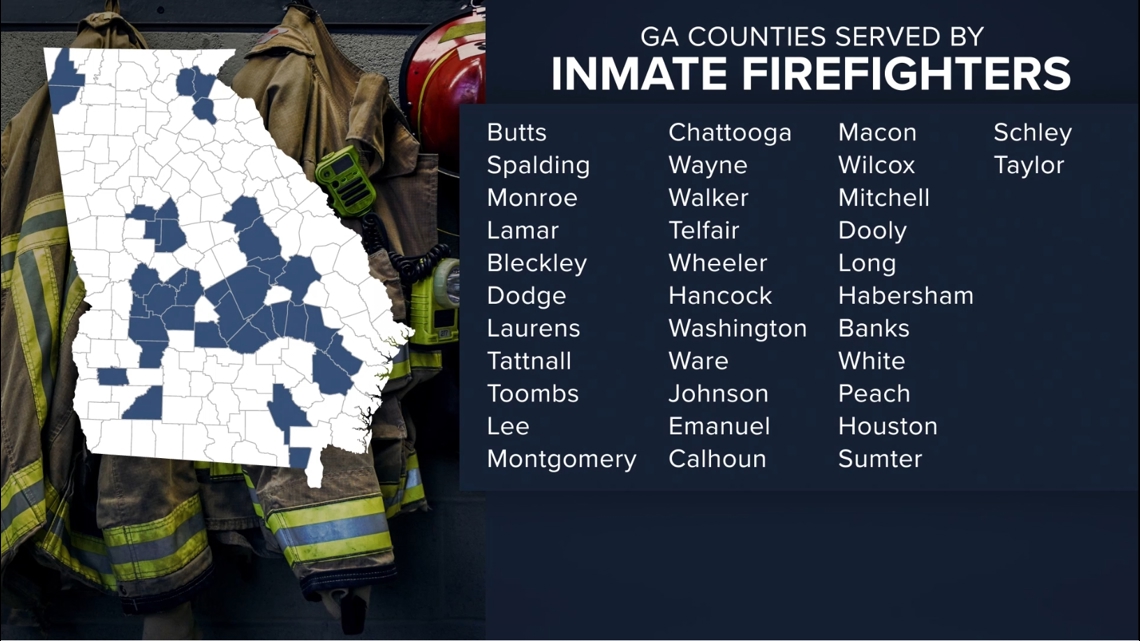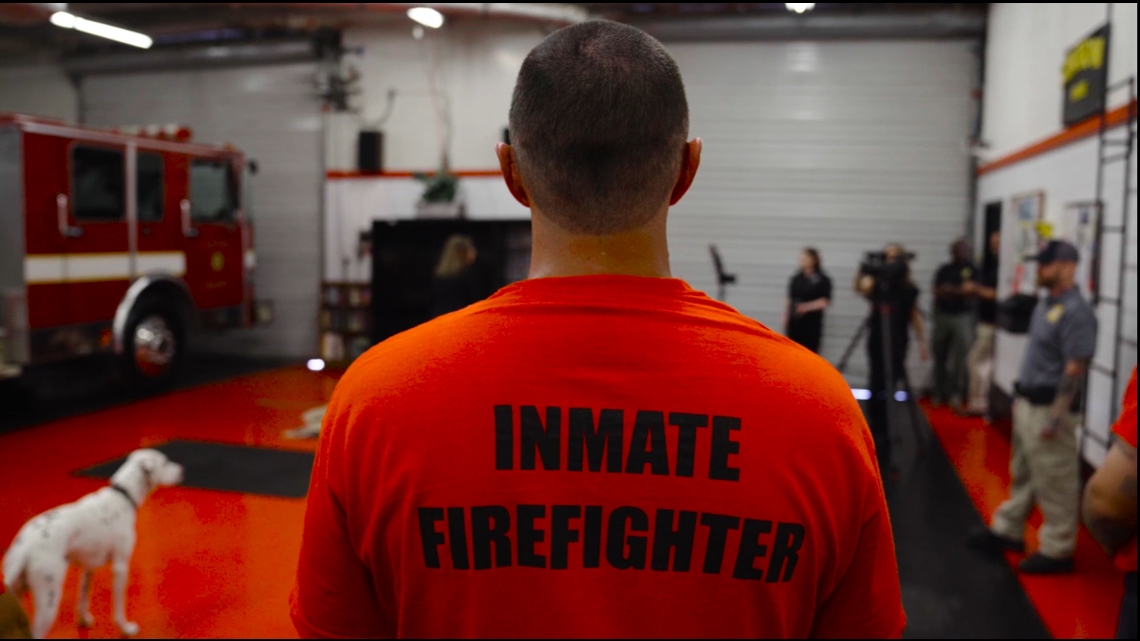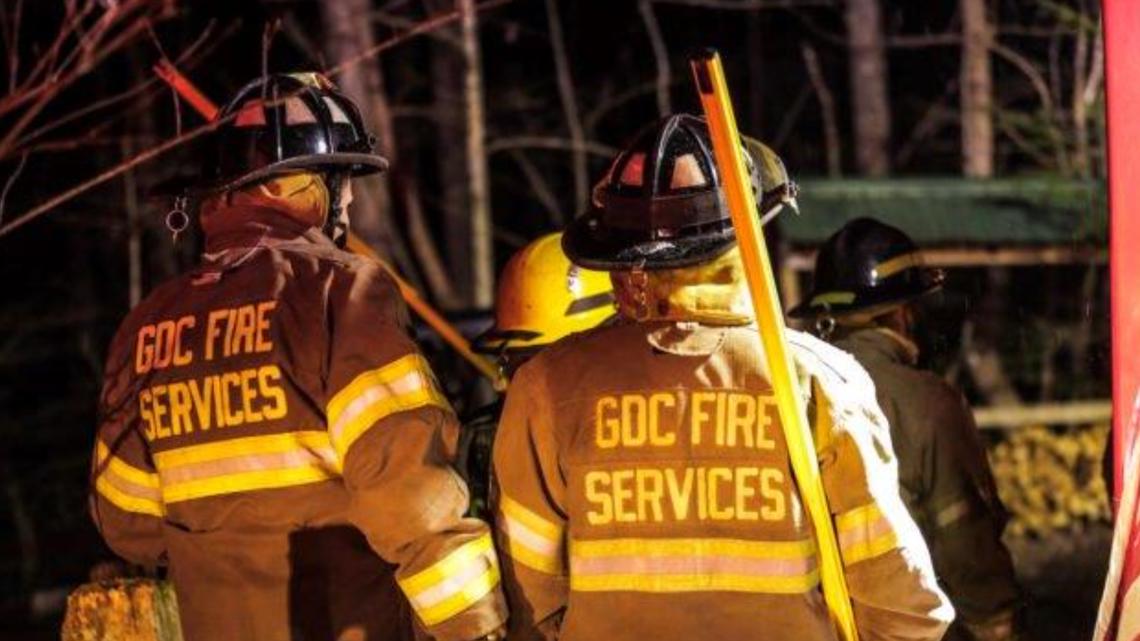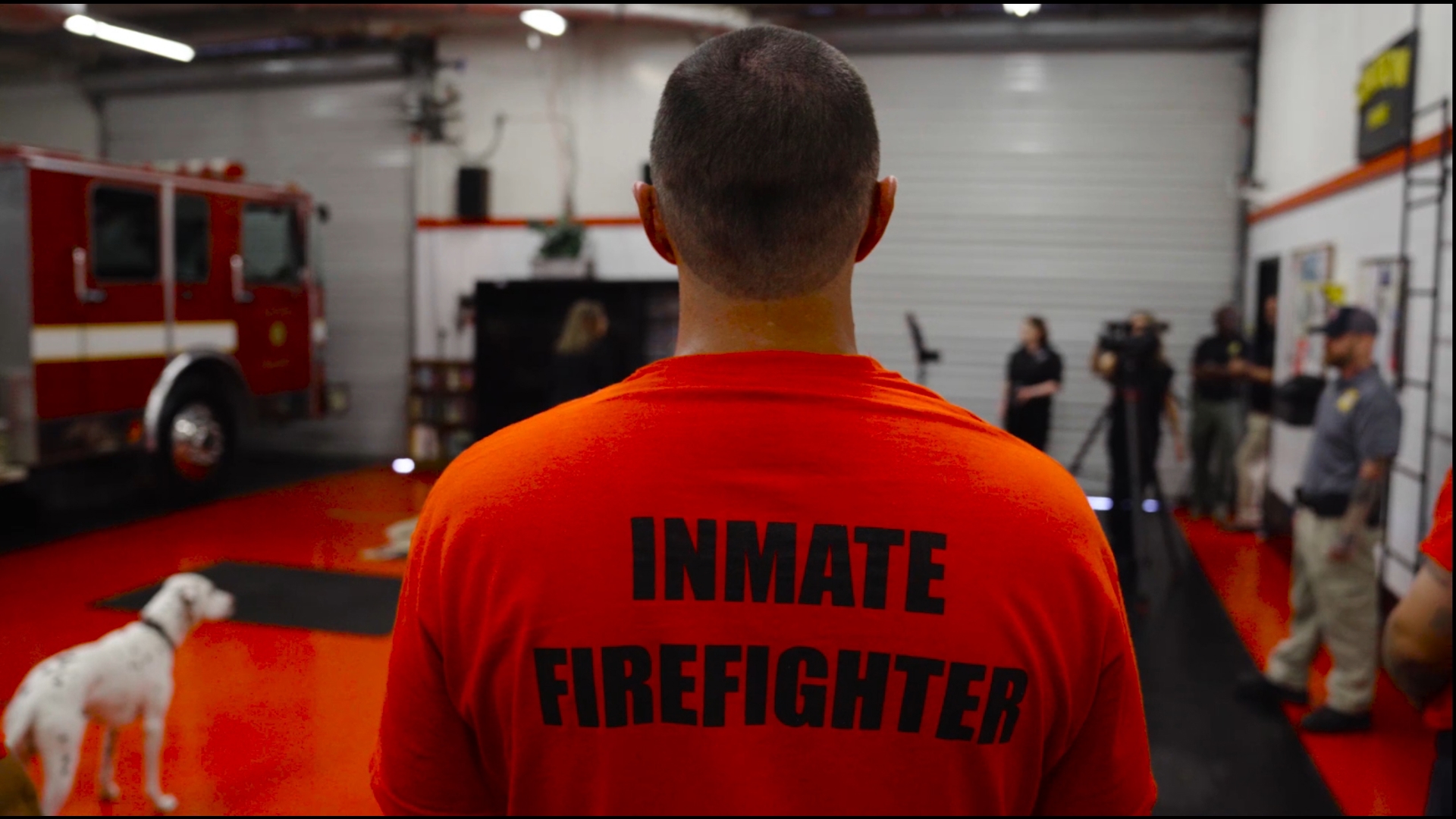BUTTS COUNTY, Ga. — If you call for fire services in one of 35 counties in Georgia, specially trained prison inmates may be the first to respond.
Amid a historic shortage of firefighters, Georgia counties are increasingly turning to state prisons for manpower. The latest data from the National Fire Protection Association reports the lowest number of volunteer firefighters nationwide since 1991.
About a fourth of all Georgia counties are now sourcing help from state prison inmates participating in the Georgia Department of Corrections' Firefighter Program.
The program was established in 1963 to train incarcerated people to be firefighters while they serve their time in prison. Once they are certified, the inmates can respond to fires within the community -- outside the prison fence.
When the program launched, 8 inmate firefighters staffed a single fire station located at Lee Arrendale State Prison. In the years since, its operations have expanded significantly. The GDC Fire Services unit currently operates 19 fire stations in state prisons and six in county prisons across Georgia.
The 19 stations serve a combined 35 counties across the state.


One of those is Station 2, located in the Georgia Diagnostic Prison about an hour south of Atlanta. Its' six-inmate fire team responds to 350-400 calls annually in Butts, Spalding, Monroe, and Lamar counties, as well as the city of Jackson.
“I spent a lot of time taking from the community now its time I can give back," said Shane Tomlin, one of the inmate firefighters on the team. "For that amount of time that we're there, they don't think of us as inmates. They think of as helping them save their house or their car."
Tomlin was three years into his prison sentence when he says a lieutenant told him about the program.
"He said 'Do want to be a firefighter?" Tomlin recalled. "I said, 'Yes, sir, sign me up.' I've been behind the fence for so many years, I didn't know that was something that I could actually do."
Tomlin recently completed his firefighter certification, which consists of physical training and written tests.
"My first call was weird because you're seeing cars in the highway and houses and trees," Tomlin recalled. "It was a lot different but I'm used to it now. I'm just glad to be able to help the community."
The inmate firefighters work for free without benefits, are on call 24/7, and live inside the fire station on prison property rather than in prison cells.
"We don't have nothing else going on," Tomlin said. "We train for this every day, so we're always ready.”
To qualify for the program, offenders must be minimum to medium security. They cannot be serving time for arson or sexual offenses. On calls, they are always accompanied by a non-offender and POST certified officer.
At Georgia Diagnostic Prison's Station 2, that officer is Chief BJ Maddox.
“Everybody makes mistakes and they deserve a second chance, and they've gotten out here and really proved that they want to do right," Maddox said. "They're firefighter certified so when they get out, they're turnkey ready.”


A long standing portion of Georgia state code banning recent felons from being firefighters was recently amended to allow the participating inmates to be hired as firefighters outside prison after they've served their time inside.
“I had to call my daughter and tell her because I've never really stuck with anything in my life," Tomlin said. "This something that I can do in the future. I have a plan now. I’ve never had a plan before.”
The inmate firefighter program responds to at least 3,000 calls a year, according to the Georgia Department of Corrections.
According to a University of Georgia research paper, in some Georgia communities primary essential services are provided exclusively by inmates.
Those services include emergency response to motor vehicle accidents, calls for medical assistance, responses to brush fires, structure fires, wildfires, and natural disasters like hurricanes.
Some Georgia counties have refused and blocked the program. Opponents have pointed to safety concerns. Others have called the unpaid, no benefits labor provided by the inmates exploitative.
In 2011, the Camden County Board of Commissioners considered implementing the inmate firefighter program. According to archived minutes from an October 2011 commissioners meeting, dozens of residents protested, urging the county not to move forward. Sixty-eight residents signed and submitted a petition titled "Camden County residents AGAINST inmates as firefighters."
Commissioners later voted to not implement the inmate firefighter program.
Still, it continues to expand. Program officials say it’s a no cost way to meet growing public safety needs amid the staffing shortage.
"You can't replace manpower and everybody's shorthanded," Maddox said. "When I roll up with seven or eight guys, I mean, that's just more manpower and the county loves it. And these guys, I'd put them up against anybody."


The program saves counties half a million dollars annually, on average. According to GDC, the program also lowers property insurance ratings for the communities they serve. It also offers inmates an opportunity to be hired as a skilled professional upon their release, the department says.
"Until now, I prayed for something different," Tomlin said. "Something better and productive. Now I have that. I'll just pray that my family and everybody can forgive me. And when I get out, I'll be able to do this again.”

